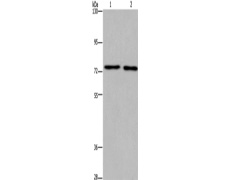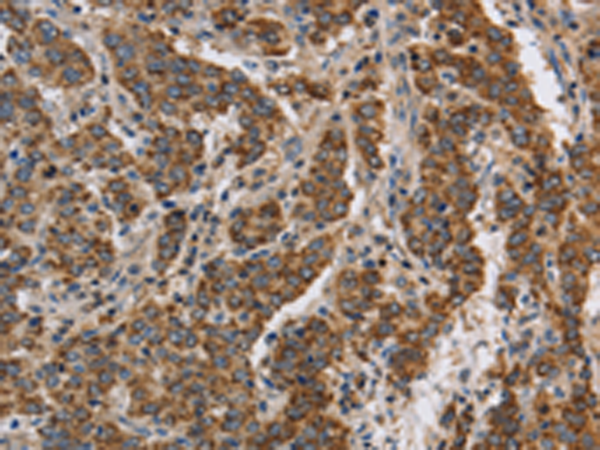Background:
The protein encoded by this gene forms a potassium channel that is thought to play a critical role in the regulation of neuronal excitability, particularly in sensory cells of the cochlea. The current generated by this channel is inhibited by M1 muscarinic acetylcholine receptors and activated by retigabine, a novel anti-convulsant drug. The encoded protein can form a homomultimeric potassium channel or possibly a heteromultimeric channel in association with the protein encoded by the KCNQ3 gene. Defects in this gene are a cause of nonsyndromic sensorineural deafness type 2 (DFNA2), an autosomal dominant form of progressive hearing loss. Two transcript variants encoding different isoforms have been found for this gene.
Applications:
ELISA, WB, IHC
Name of antibody:
KCNQ4
Immunogen:
Synthetic peptide of human KCNQ4
Full name:
potassium voltage-gated channel, KQT-like subfamily, member 4
Synonyms:
DFNA2; KV7.4; DFNA2A
SwissProt:
P56696
ELISA Recommended dilution:
1000-2000
IHC positive control:
Human liver cancer and Human brain
IHC Recommend dilution:
50-200
WB Predicted band size:
77 kDa
WB Positive control:
Human fetal brain and mouse brain tissue
WB Recommended dilution:
200-1000
技術規(guī)格


 購物車
購物車 幫助
幫助
 021-54845833/15800441009
021-54845833/15800441009

